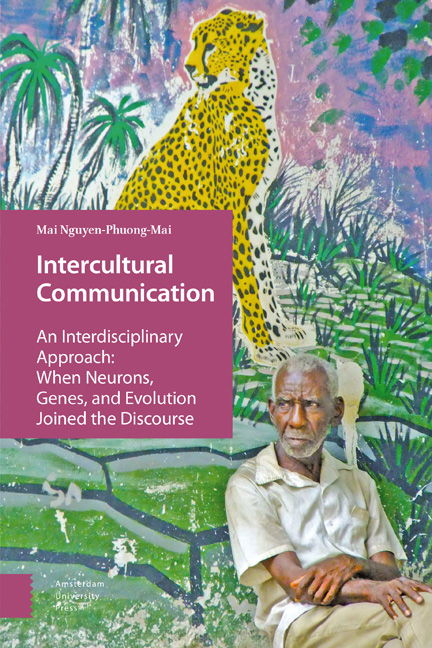 Intercultural Communication
Intercultural Communication Book contents
- Frontmatter
- Dedication
- Contents
- Preface
- 1 The Survival of the Most Cultured
- 2 The Evolving Culture
- 3 Stereotype – A Necessary Evil
- 4 Non-Verbal Communication – How You Make Them Feel
- 5 A Taxonomy of Diversity
- 6 Intercultural Competence – Creating Yourself
- 7 Diversity Management and Inclusion
- To the Readers
- 7 Takeaways from this Book
- Up and Coming Book from the same Author
- Notes
- Index of Names
- Index of Subjects
- Index of Geography, Culture and Religion
6 - Intercultural Competence – Creating Yourself
- Frontmatter
- Dedication
- Contents
- Preface
- 1 The Survival of the Most Cultured
- 2 The Evolving Culture
- 3 Stereotype – A Necessary Evil
- 4 Non-Verbal Communication – How You Make Them Feel
- 5 A Taxonomy of Diversity
- 6 Intercultural Competence – Creating Yourself
- 7 Diversity Management and Inclusion
- To the Readers
- 7 Takeaways from this Book
- Up and Coming Book from the same Author
- Notes
- Index of Names
- Index of Subjects
- Index of Geography, Culture and Religion
Summary
Let us first recap our understanding of the evolutionary role of culture. In essence, it has replaced genes to guide humans in the survival game. In order to be successful, we do not need to evolve sharper teeth or bigger wings. Instead of waiting for our genes to evolve – which may take forever – we put the best ideas together, creating weapons and aircrafts, destroying enemies a million times more effectively than the sharpest teeth, and flying a million times further than any birds ever existed on earth. From an evolutionary point of view, each culture is an immense archive of ideas – what it is best to do to survive. For every decision we make, we rely on ideas from our immediate culture to give us a hint about the right course of action. We may want to embrace a certain value, dress in a certain way, go to a certain school, or make a certain career choice, depending on the demands and expectations of the specific culture that hosts us at that moment.
Note that genes do not stand idly by, but actively evolve, change and adapt to support our process of adjustment (gene-culture coevolution theory). For example, if you are a taxi driver in a big city, it is likely that your brain is quite different from others, since your job (i.e. co-culture) requires part of your hippocampus to grow bigger to help you store a detailed mental map of your metropolis. In other words, genes change, so you can acquire the necessary culture.
In sum, without culture and its guidance, an individual would be clueless about what to do. Put an abandoned fox in the jungle, it will be led by it genes and start to live like a fox. Put an abandoned baby in the jungle, it will forget that it is a human. It will adopt the culture of whoever saves its life, be it a gorilla or a wolf. This is what makes Tarzan and Mowgli interesting characters. Throughout human history, the most likely survivors are those who can best attune to a culture.
In most cases, that process of attuning happens quite naturally. However, globalization has made cultural borders much more visible.
- Type
- Chapter
- Information
- Intercultural CommunicationAn Interdisciplinary Approach: When Neurons, Genes, and Evolution Joined the Discourse, pp. 215 - 246Publisher: Amsterdam University PressPrint publication year: 2017


